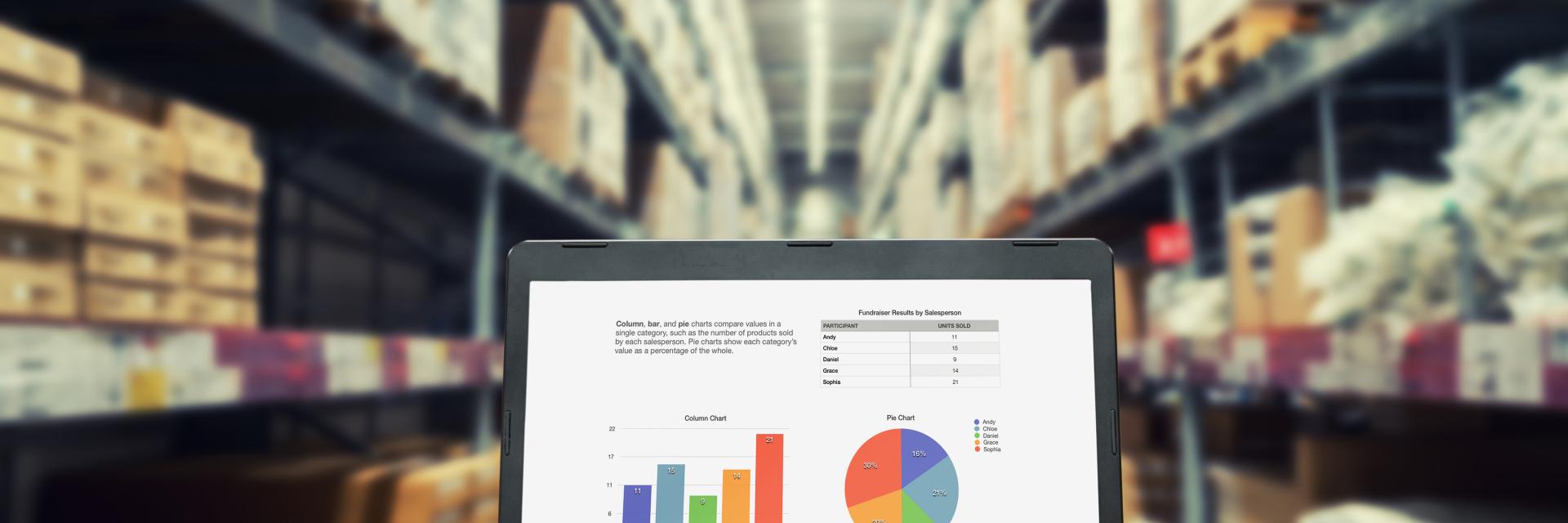The importance of e-commerce: what you need to know
Thursday, December 13, 2018
Earlier this year, we shared a list of business resolutions for 2018. As the year comes to a close, we're shining the spotlight on one of those resolutions - incorporating e-commerce into your business.
It may seem timely to highlight e-commerce during the busy holiday season, but for many businesses, it should be the core of your strategy.
The growth of global e-commerce is unprecedented. According to a Statista report, it reached approximately $2.3 trillion in 2017 and is expected to hit $4.5 trillion in 2021. According to Shopify, e-commerce represents almost 10 percent of retail sales in the US alone— a figure that is growing by nearly 15 percent each year.
E-commerce represents almost 10% of retail sales in the US alone— a figure that is growing by nearly 15% each year.
Defining e-commerce
Aaron Whitman, President of Ablesense, explains the all-encompassing ecosystem of today's e-commerce. "I almost feel like we need to lose the 'e' sooner than later. E-commerce is the ability to connect with your customers all the places they are. Sometimes that's in your store, but more often than not it's in other places where they're doing something that relates to your brand or their consumption preferences. Think Instagram, Reddit, WeChat, YouTube, video games, augmented reality - they're all part of e-commerce."
"It's not going to your workstation in the corner of your living room, firing up the web browser and ordering stuff. That's still part of it, but the perception around e-commerce should be broader. We like to put it in the center of your business. And by that we mean, your customers are in these places already. If you're not there and engaging with them, they're engaging with something else by definition."
Whitman continues by explaining that his definition of e-commerce is really about removing friction from buyers and sellers, and this includes existing clients. "Even your most loyal customers who come to your shop are getting signals outside of that and they're acting on them - they're buying online."
Even your most loyal customers who come to your shop are getting signals outside of that and they're acting on them - they're buying online.
In-action: exporting via online sales
Kathleen Quinlan's approach is a great example of removing the friction. As the Founding Partner at Fiore Botanica, a natural skincare company in Lunenburg, Quinlan and her business partner have found e-commerce to be a huge growth area for their business. "Our website and e-commerce sales are over the top. They've almost doubled since last year," explains Quinlan in a recent interview. International buyers from Australia, Asia, the United States, and Europe find their products while visiting Lunenburg and are able to keep purchasing via their website once they've returned home from their travels. "I always feel once you use my products, you're going to continue using the products." For Fiore Botanica, e-commerce is the bridge to keep that connection.
Another critical reason to focus on e-commerce is to not miss out on opportunities uncovered by emerging trade agreement opportunities. The Comprehensive Economic and Trade Agreement (CETA) and Comprehensive and Progressive Agreement for Trans-Pacific Partnership (CPTPP) open a number of markets for exporters, particularly those who have embraced e-commerce. Just to give you a sense of the opportunity, here is a quick snapshot of the 10 largest e-commerce markets in the world:
- China
- United States
- United Kingdom
- Japan
- Germany
- France
- South Korea
- Canada
- Russia
- Brazil
Today's e-commerce opportunities are practically unlimited. It's about engaging with your customers wherever they are. Exporters who are curious about opportunities in e-commerce can listen to our podcast with Ablesense, download our Trade Market Intelligence Special Report on e-commerce in China, or connect with the Regional Business Development Advisor in your area to explore how our programs and services could help your business.





